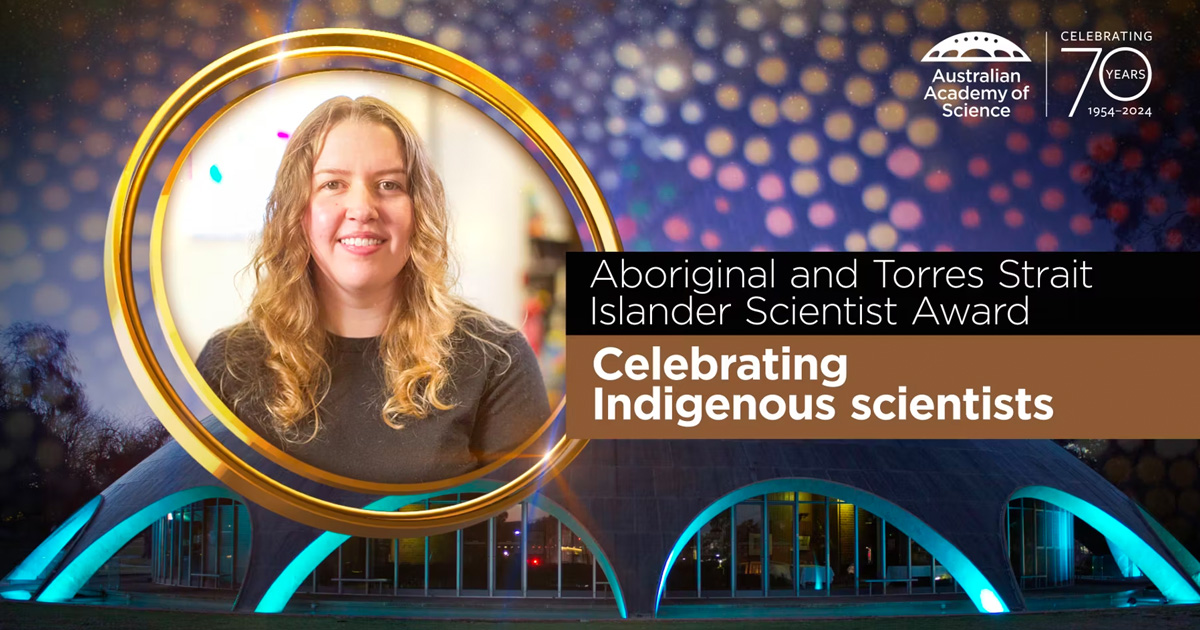Search
Research
CAR T cells targeting B7H3 demonstrate potent preclinical activity against AML and ESCCT cells engineered to express chimeric antigen receptors (CARs) are a promising modality to treat refractory cancers. CD19 CAR-T therapy has achieved remarkable responses in against B-cell lymphomas, however, challenges persist for acute myeloid leukemia (AML) and solid malignancies. B7H3 is an immune regulatory molecule that is highly expressed in various tumor cells. Its abnormal expression in acute AML and esophageal squamous cell carcinoma (ESCC) is closely related to tumor progression.

News & Events
Prestigious national award for researcher seeking to improve Indigenous cancer outcomesCongratulations to Indigenous genomics researcher Dr Justine Clark, who is one of two scientists nationally to receive the Australian Academy of Science’s 2024 Aboriginal and Torres Strait Islander Science Award.
Research
Fc-Engineered B7-H3 Antibody with Prolonged Serum Half-Life for Enhanced Cancer TherapyMonoclonal antibodies are revolutionizing the landscape of current cancer treatment, bringing hope to patients with incurable cancers. B7-H3 (CD276) is an attractive therapeutic target for antibody-based therapy due to its low or absent expression in normal tissues and high expression in various types of tumors, including prostate cancer, pancreatic cancer, and high-mortality esophageal squamous cell carcinoma (ESCC). In recent years, various B7-H3-targeting antibodies have been developed for cancer treatment, with a few making their way to clinical trials.
Research
Microbiota-derived butyrate promotes a FOXO1-induced stemness program and preserves CD8+ T cell immunity against melanomaA range of microbiota species correlate with improved cancer outcomes in patients and confer protection in pre-clinical mouse models. Here, we examined how microbiota regulate CD8+ T cell immunity against melanoma. Spontaneous control of cutaneous melanoma in mice correlated with metabolic pathways required for microbial synthesis of short-chain fatty acids (SCFAs) shared between several microbiota species.
Research
DeepEGFR a graph neural network for bioactivity classification of EGFR inhibitorsEpidermal Growth Factor Receptor (EGFR) plays a critical role in the development of several cancers. Thus, modulation/inhibition of EGFR activity is an appealing target of developing novel cancer therapeutics.
Research
Heterogeneity and distribution characteristics of tertiary lymphoid structures predict prognostic outcome in esophageal squamous cell carcinomaTertiary Lymphoid Structures (TLSs) are ectopic lymphoid aggregates that form within the tumor microenvironment (TME) and are increasingly recognized as potential prognostic biomarkers in various cancers. However, the spatial heterogeneity and prognostic value of TLSs in esophageal squamous cell carcinoma (ESCC) remain poorly defined. This study aimed to characterize the spatial distribution patterns of TLSs and tumor-infiltrating lymphocytes (TILs), and to establish a refined prognostic model for ESCC patients in both surgery-only and neoadjuvant therapy cohorts.
Research
The Cold Atmospheric Plasma Inhibits Cancer Proliferation Through Reducing Glutathione SynthesisCold atmospheric plasma (CAP) is a safe and effective alternative to radiotherapy for cancer treatment. Its anticancer effects are attributed to increased intracellular reactive oxygen species (ROS). Glutathione, a key antioxidant derived from glutamine, is critical for cell proliferation. This study investigated whether CAP-induced ROS elevation results from reduced glutamine-glutathione conversion and elucidates the underlying mechanisms.
Research
Interleukin-4 modulates type I interferon to augment antitumor immunityDespite advances in immunotherapy, metastatic melanoma remains a considerable therapeutic challenge due to the complexity of the tumor microenvironment. Intratumoral type I interferon (IFN-I) has long been associated with improved clinical outcomes. However, several IFN-I subtypes can also paradoxically promote tumor growth in some contexts.
Research
Potential predictive value of CD8A and PGF protein expression in gastric cancer patients treated with neoadjuvant immunotherapyImmunoneoadjuvant therapy has gained significant attention due to its remarkable advancements in cancer treatment. This study aimed to investigate the molecular mechanisms underlying immunoneoadjuvant therapy through a comprehensive multiomics analysis of samples from a registered clinical trial cohort.
Research
A New Model to Investigate the Action of Radiation and Cigarette Smoke on Head and Neck Cancer CellsSmokers are at an increased risk of developing mucosal head and neck squamous cell cancers (HNSCCs) and have a worse prognosis when treated. The cellular and molecular mechanisms underlying the latter has not been established. We therefore developed an in vitro model to investigate the effects of radiation and smoking on mucosal HNSCCs.
